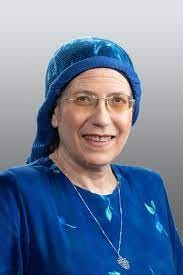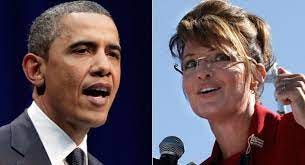The problem with women
If you want to understand why the feminist movement is struggling in Israel, look no further than Orit Struck.
Exactly three years ago this week, I sat with a group of women in a home in Hod Hasharon and established The Kol Hanashim Women’s Party in Israel that ran in the March 2020 elections, a blink before Covid upended all our lives.
This sort-of-feminist experiment was mostly a failure. We received 5,000 votes, marginal media attention, and almost funding. Shortly after the election, our party leadership disbanded and went elsewhere. Our #1 on the list went back to her Yesh Atid roots, our #2 became a Knesset member with Avigdor Liberman’s party, our #3 got a job in the office of a Labor MK, and the overwhelming majority of women on our list moved on. I was both #4 and the party chair, and I spent some time trying to rebuild the party with some new people, but we never quite got anywhere.
Our failure can easily be attributed to funding and infrastructure. We did not have enough lead time to build a grass-roots movement — grass-roots support that was necessary to raise money — money that was essential to enter voters’ consciousness and screens. All of that is true.
We thought we could have used social media as a work around to reach many people fast. That didn’t quite happen. We never went viral — despite some talented social media professionals on our team.
We thought there was already a groundswell of support because of things like #MeToo and the women’s movement around the world. We thought that out of the dozens of women’s organizations around the country, some would use their platforms and audiences to go all in. That didn’t happen either.
The reason we failed, in my open, has to do with the women’s movement in Israel. Or perhaps the lack thereof.
In order to understand the cultural barriers to a comprehensive, grass-roots, women’s movement, all we need to do is look at some of the women leading the political discourse today in Israel.
Exhibition A: MK Orit Struck.
Women on the extreme religious right
This week, Israel learned that the far right religious Noam Party, which is now officially a coalition party for the incoming government, has been compiling a blacklist of LGBTQ advocates and feminists in the Justice Ministry and the media.
Wlecome to McCarthyism 2.0, Israel version.
The party’s sexist, homophobic witch hunt is driven by the notion that the religious community is threatened by the LGBTQ community and feminists. The party leader, Avi Maoz, has come out against women serving in the army, has vowed to shutter the army unit for promoting equal opportunities for women in the army, and is about to become Israel's "national Jewish identity" czar. He will be in charge of a wide range of educational programs in schools from bar/bat mitzvah education to sexuality.

All of this is beyond alarming. We are facing a government run by extreme-right religious parties who have an express agenda to attack women, the gay community, Palestinians, and non-practicing Jews for starters. It’s like a ten-alarm fire threatening democracy and civil society, in an area that was already on fire.
But it gets worse. At least it gets worse for me as a lifelong advocate for women.
What can be worse than this? That this attack is currently being led by a woman.
Not any woman, but one of only a handful of women who are going to be serving in the government coalition.
Orit Struck, the religious Zionist MK and one of only 8 women in the incoming government, has become the loudest and most powerful defender of Noam’s platform.
Struck has been on a media blitz saying that halakha is more important than democracy and civil rights. Doctors cannot be compelled to perform abortions, she argues. Businesses should be allowed to refuse to serve LGBTQ customers — the Israeli version of Hobby Lobby.
These positions are horrifying. But what makes it so much worse for me is that they are being heralded by a woman. One of the few women in Israel with power.
The difference between women who gain power and women fighting for ALL women to gain power
The reason why it is seemingly impossible to build a comprehensive movement for women’s rights in Israel is because so many women do not support the fight for women’s rights.
This is very painful for me to admit.
Indeed, one of the worst moments for me during our 2020 campaign was the discovery that many of the women in the top ten do not identify with feminism.
I learned this the hard way when, during one of our campaign stops, following my stump speech about the need for women in positions of power in order to represent the needs of women, an audience member asked a question about feminst political activism around the world.
“Oh, I’m not a feminist,” my co-speaker said, to my shock. She was #1 on our list, heading the Women’s Party, and declaring that she is not a feminist.
The audience member was also shocked. She herself is a well-known feminist scholar in Jerusalem and her question was clearly meant to connect to world movements.
“What is feminism anyway?” my co-speaker and party colleague asked, not quite rhetorically.
I have an answer to what feminism is, and it matters.
Saying “I’m not a feminist” is not a semantic issue. When someone gets up and says, “I’m not a feminist”, it means that they are not identifying with the struggle to remove the yoke of patriarchy from women’s necks. It means they don’t see the challenges that women face as systemic. It means that they are not seeing women as part of a population that shares oppressive experiences, and do not see themselves as part of the solution.
Feminism is very simply breaking down the patriarchy — in all its forms, in all its many manifestations, for all people who are negatively impacted by it. That’s it. It’s a simple definition. And it matters. It’s not about the advancement of ONE woman. It is about breaking down the systems that keep people trapped in patriarchal oppressions.
When someone says, “I’m not a feminist”, it means that breaking down systemic patriarchy is not their goal. Something else is.
TFW Tzipi Livni discovered feminism
It reminds me of the transformation that MK Tzippi Livni underwent when she ran for Knesset in 2009 as head of Kadima, following several years as Foreign Minister under Netanyahu when he routinely kept her out of meetings and decision-making. She was meant to head negotiations over the cease-fire in Gaza and she was not invited to attend the summit in Egypt. Bibi invited some lawyer friend with no official position instead of Livni, and there were no women around the negotiating table at all. So that happened.
Livni had been arguably the most senior women in Israeli politics for over a decade, and the first woman with any real potential to become Prime Minister since Golda Meir became PM in 1969. Livni, like Meir, was often the only woman around the table. And she, like Golda Meir, often failed to advocate on behalf of women. When Livni was Justice Minister in the 1990s, the agunah organizations approached her to inact legislation to protect women in divorce — and she refused. She was not a friend of women, just as Golda Meir was not an advocate for women.
But in 2009, something changed for Livni at a conference in Ben Gurion University on the status of women in politics, she told the audience the following (I’m paraphrasing because I didn’t record it, just listened):
In the past, I didn’t identify as a feminist. I used to think that my challenges as a woman in politics were mine alone. But then I realized that obstacles that I faced had a lot to do with the fact that I’m a woman. These are systemic barriers and injustices. That is how I discovered feminism, and why I have since decided to advocate for women.
It was amazing for me to hear this. First of all, it felt almost like an apology to women like me, those of us who had been begging her for help in the 1990s when she refused. That meant a lot. Second of all, she was very public about her own internal processes and changes in perspective, which is very rare in politics and very welcome and human.
Third of all, she offered what I see as a perfect encapsulation of feminism and why it matters.
Sometimes people say things like, “You see, I am actively pursuing a high-powered career. That is my feminist activism.” But that’s not really it. Feminism is not just about advocating for the self, though there is nothing wrong with advancing one’s career. Feminism is about seeing women as a collective with some shared experiences and barriers. It’s about caring about women as a group, not just as individuals each of us climbing some kind of career ladder. It’s about changing the systems that hold us all back.
Sometimes, we hear women deny that these oppressions exist. Women, for example, who are happy to not work, or don’t want a leadship position, or who don’t want to be expected to bring home the bacon or make a minyan, or who are happy within the confines of religious restrictions on women. I often hear women say that feminism is wrong because they are not oppressed. A religious woman from Beit Shemesh once said to me, “I’m happy to sit in the back of the bus.” Literally, in those words.
Feminism asks us to look beyond our own individual experiences and consider the experiences of women everywhere. Even women with different backgrounds — women of different ethnic, racial, national, socio-economic, religious or gender identities. Women who make different life choices. Women who have different bodies. Women of different ages. Women of different abilities. We are ALL facing systemic patriarchy in our lives. All of us. And feminism asks us to consider all of these experiences, and to participate in advocacy for systemic change. It’s not just about advocating for my own best life. It’s about looking around and caring about the entire culture.
Or, like it says in the Talmud, “Eino ro’eh eino ra’aya” — that is, just because I haven’t seen something, that doesn’t mean that it doesn’t exist. Feminism asks us to look around us and see what other people are experiencing in the system.
That means that even if the system in some ways benefits me. Even if the system works for me. It’s about understanding that the system is fundamentally unjust and promotes suffering and unfairness.
The particular pains from women who are gatekeepers of the patriarchy
Watching Struck act as the mouthpiece for the patriarchy is unbearable. It is a reminder about how often women are the gatekeepers of the patriarchy — like Supreme Court Justice Amy Coney Barrett.
Women gatekeepers of the patriarchy create a huge problem for the advancement of women. They make it very difficult to advocate for women as a group.
For example, in our women’s party, advocating for women may have meant, theoretically, advocating for all women. Even women who were anti-democracy, anti-equality, and even anti-women. It is head spinning to even write the words, “Women who are anti-women.” That concept is such a shock to the system. But that became a massive challenge.
Should a women’s party represent all women, even anti-women women? Like Orit Struck, or like Likud MK Talli Gottleib who dedicated her career to defending rapists and saying that victims wanted it…. Or like Idit Silman who singlehandedly brought down the previous government in an attack on religious freedoms….
It’s a long list. That is, the list of women in power who betray the movement to advance women’s power.
The advancement of women in Israel is stalled by this very painful dynamic: that is, women advancing their own careers by choosing to oppress other women. It explains a lot of what encountered in the women’s party. It turned out that many of my co-campaigners did not actually care about feminism at all but saw us as an easy group to piggy-back on for their own political advancement. It wasn’t about the cause but about their careers.
I think of it as the Obama-Palin dilemma. When Obama was running for president in 2008 with Biden against McCain-Palin, I found myself torn. As a woman advocating for the advancement of women, I was eager to see a woman in the White House. But if that woman was a right-wing religious woman who was anti-abortion and other women’s rights, how could I vote for her? What is more important, having women in power, or having advocates for women in power?
I think the answer is probably obvious. In this case, voting for Obama, a man, was ultimately better for women’s advancement than voting for Palin, herself a woman.
This is a crushing reality. To advance women, elect the man. In this case. electing the pro-women man is better for women’s advancement than electing the anti-feminist woman. I do not have enough words to explain how upending this reality is.
But that is where we are. When I listen to Orit Struck talking about crushing the rights of women and other threatened groups, I have to check my calendar to see if we’re still in the 21st century….
That is why I am no longer promoting a women’s party. I think it’s more important to have a feminist party than it is to have a women’s party.
*****
What about you? how do you grapple with these issues? I would love to hear your thoughts.
#####
Keep reading with a 7-day free trial
Subscribe to The Roar to keep reading this post and get 7 days of free access to the full post archives.






